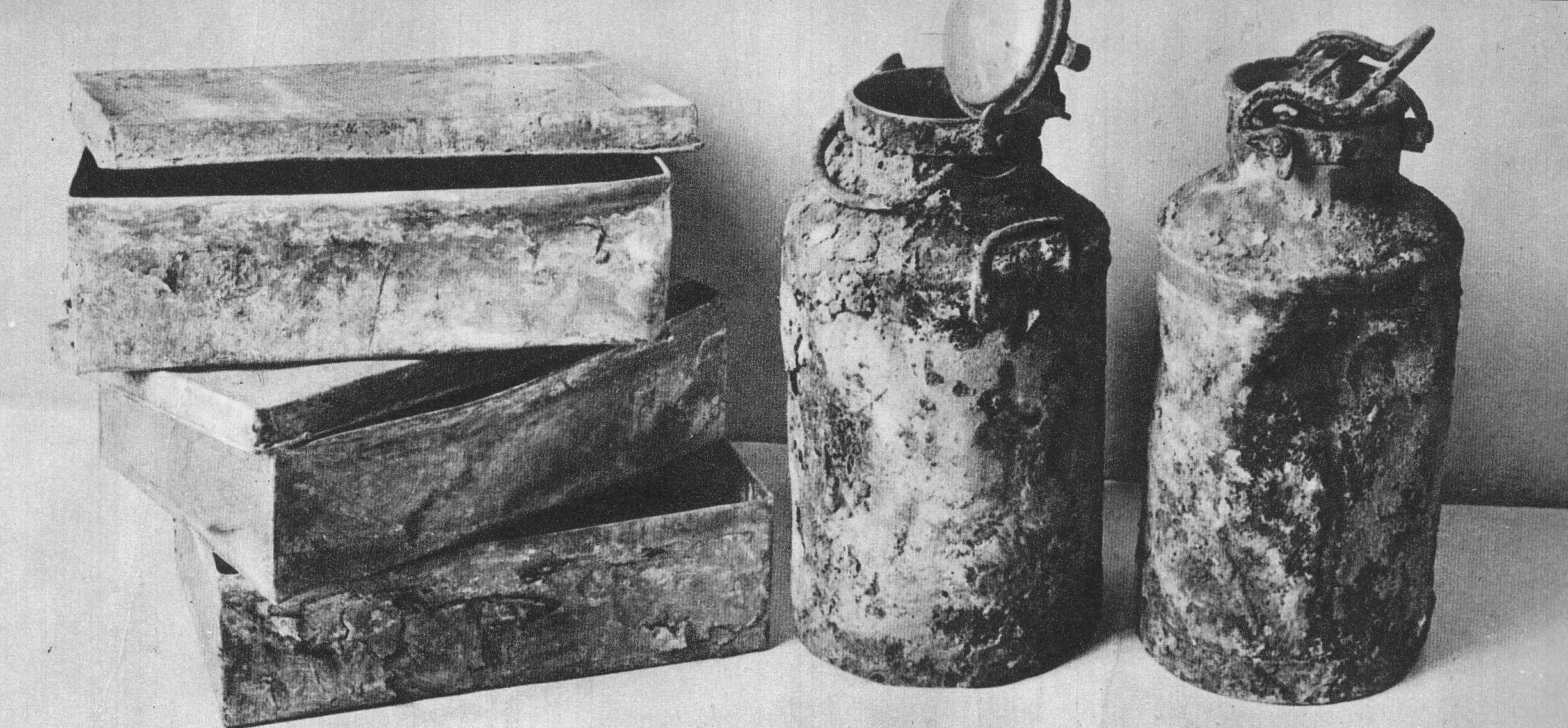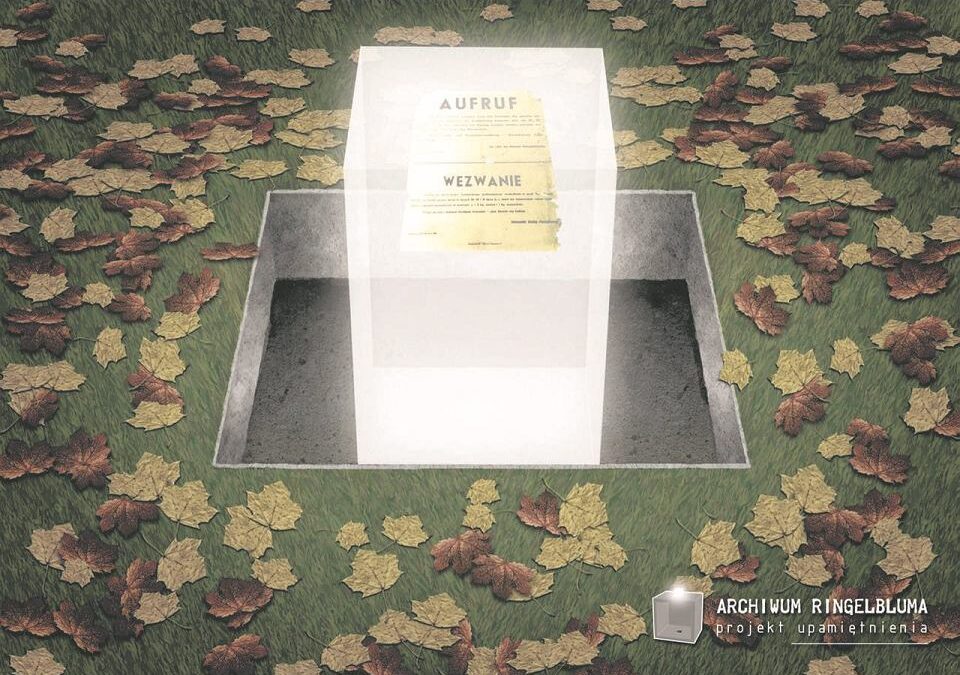Construction will begin this month on a monument to commemorate the Ringelblum Archive – a collection of documents from the Warsaw Ghetto buried during the war to hide it from the German Nazi occupiers.
The new commemoration will consist of an underground chamber with an illuminated document visible above ground at the site where the first canister of documents was dug up.
It is being built with support from donors from around the world, as well as Jewish historical institutions and museums in Poland, reports Gazeta Wyborcza.
Ponad 40 darczyńców Polski i świata finansuje upamiętnienie miejsca ukrycia i odnalezienia Podziemnego Archiwum Getta Warszawskiego. Na skwerze przy ul. Nowolipki na Muranowie rozpocznie się budowa instalacji, której projekt czeka na realizację od 11 lat. https://t.co/uDkPvrWCCO
— Kinga Mierzyńska (@kingamierzynska) January 11, 2021
The archive contains around 6,000 documents from the ghetto, including newspapers, testimonies, reports, poetry, letters and posters. They document life in the ghetto, but also the destruction of Jewish communities in German-occupied Poland.
They were preserved between 1939 and 1943 thanks to an underground group of around 50-60 scholars and intellectuals known as Oyneg Shabes, founded by Emanuel Ringelblum, a Polish-Jewish historian.
After hearing news of deportations from the ghetto, Oyneg Shabes began to hide the documents across Warsaw in metal boxes and milk canisters. After the war, in 1946 and 1950, two collections were found.
However, a third cache remains missing. It is believed to be buried near the site of the current Chinese embassy.

Metal boxes and milk canisters used to bury the Ringelblum Archive
Plans for a monument to commemorate the hiding place of the archive have been in the pipeline for over a decade. But it is hoped that, with construction now set to start, it could be ready to be unveiled on 19 April, the anniversary of the outbreak of the Warsaw Ghetto Uprising.
The selected design – by Łukasz Mieszkowski and Marcin Urbanek – will take the shape of a sunken concrete chamber. Above the ground, a transparent box containing a document will be illuminated.
The monument will “symbolise the thousands of documents from the Ringelblum Archive,” Piotr Wiślicki, chairman of the Jewish Historical Institute (JHI) association, told Gazeta Wyborcza.
He added that the monument was inspired by a renowned quote from 19-year-old Oyneg Shabes member Dawid Graber. “What we could not shout out to the world, we buried in the ground,” Graber wrote in his testament, the day before he was murdered.
Katarzyna Person, an assistant professor at the JHI who worked on the archive, told Notes from Poland that this collection is one of very few direct traces of the existence of those who were imprisoned in the Warsaw ghetto.
“The archive is one of the most important collections relating to the Holocaust in Poland, a testament both to the murdered community and to the incredible spirt of the archive’s creators,” she added.
This, she stressed, is why it is so important that this collection be commemorated in the place where they lived, and where many also died.
The monument will cost 300,000 zloty (€66,000), according to Gazeta Wyborcza. The land on it will be erected was provided free of charge by the Wola district of Warsaw in which it is located. Donors, from Poland and abroad, have also helped to fund the project, thanks to an appeal by the JHI.
“More than 40 donors from around the world donated funds to build the monument,” said Wiślicki. “Our friends shared our belief that the commemoration of the Ringelblum Archive should be a permanent part of the map of Warsaw.”
Person hopes that the commemoration will lead to greater awareness of the archive. “It is truly a unique collection, one which deserves to be better known and one which is so modern in its way of writing history that it is fully accessible also to today’s readers,” she said.
Only three members of Oyneg Shabes survived the Holocaust. Ringelblum himself managed to escape from the Warsaw Ghetto before the uprising, but was shot in 1944, along with his family and the Christian Poles who had hidden them, after being found by the Gestapo.
The JHI is also planning to construct a symbolic grave for the founders of the Ringelblum Archive in the Jewish Cemetery at Okopowa Street in Warsaw.
The archive is now in the JHI collections, and many documents are available online, with several translated into English. In 1999, the archive was also inscribed into UNESCO’s Memory of the World Register, a project to preserve the documentary heritage of humanity.
Main image credit: materiały projektantów

Juliette Bretan is a freelance journalist covering Polish and Eastern European current affairs and culture. Her work has featured on the BBC World Service, and in CityMetric, The Independent, Ozy, New Eastern Europe and Culture.pl.




















